Google have now finally unveiled their new cloud gaming service named Stadia, offering instant access to play games in Google Chrome.
What they joked was the worst-kept secret in the industry (no kidding), sounds like quite an interesting service. Certainly one that could eventually end up redefining what gaming is. A little hyperbolic maybe? I'm not so sure considering how easy this should be to jump into a game. On top of that, they very clearly talked about how it's built on Linux (Debian specifically) and Vulkan with custom GPUs from AMD.
Something they showed off, was how you could be watching a game trailer with a button to play it on Stadia and (supposedly within a few seconds) you would jump right into it. That's quite en exciting idea, one that would easily pull in quite a lot of people I've no doubt.
As for resolution, they said it will support 1080p and 4K around 60FPS at release with 8K being worked on as well but that sounds further out if anyone even cares about 8K right now.
They also showed off their new controller, with a dedicated Google Assistant button and a button to capture video immediately for YouTube:
While Google are making their own dedicated gamepad, they did say it will be compatible with other devices too.
They also announced partnerships with both Unity and Unreal Engine and Stadia will "embrace full cross-platform play" including "game saves and progression". They also had id Software, talk about how it didn't take long to bring the new Doom Eternal to Stadia, thanks to how they made the previous Doom game with Vulkan.
This means, that development for Linux is suddenly going to become a priority for a lot more developers and publishers. I don't want to overstate how important that is, but it's a very exciting prospect. This doesn't suddenly mean we're going to see a lot more Linux games on the desktop, but it's entirely possible after they go through all the work to get the games working on Linux with Vulkan for Stadia.
Stream Connect is another service they talked about. They mentioned how developers have pushed the boundaries of gaming but often local co-op is left out, as doing it multiple times in top-end games can require really beefy hardware. With Stadia, each instance would be powered by their servers so it wouldn't be such an issue. They also talked about how if you're playing some sort of squad-based game, how you could bring up their screen to see what they're doing which sounds very cool.
Google also announced the formation of their own game studio, Stadia Games and Entertainment, to work on exclusive games for their new service.
As for support from more external game developers, they mentioned how they've shipped "development hardware" to over 100 developers. From what they said, it should be open to smaller developers as well as the usual AAA bunch.
Stadia is confirmed to be launching this year and it will be first available in the US, Canada, UK and "most of Europe". One thing wasn't mentioned at all—price, but they said more details will be available in the summer. The official site is also now up on stadia.com and developers have their own website to look over.
Google also posted up some extra information on their developer blog:
Google believes that open source is good for everyone. It enables and encourages collaboration and the development of technology, solving real-world problems. This is especially true on Stadia, as we believe the game development community has a strong history of collaboration, innovation and shared gains as techniques and technology continually improve. We’re investing in open-source technology to create the best platform for developers, in partnership with the people that use it. This starts with our platform foundations of Linux and Vulkan and shows in our selection of GPUs that have open-source drivers and tools. We’re integrating LLVM and DirectX Shader Compiler to ensure you get great features and performance from our compilers and debuggers. State-of-the-art graphics tools are critical to game developers, and we’re excited to leverage and contribute to RenderDoc, GAPID and Radeon GPU Profiler — best of breed open-source graphics debugging and profiling tools that are continually improving.
There's probably plenty I missed, you can see their video on YouTube here.
As exciting and flashy as it sounds, it's obviously not Linux "desktop" gaming which is what the majority of our audience is likely interested in. However, things change and if it does become a huge hit we will cover it more often if readers request it. Linux gaming can mean all sorts of things from native games to emulators, Wine and Steam Play and now perhaps some cloud gaming so I don't want to rule it out. However, I can't see this replacing Steam, Humble, GOG, itch.io and so on for me personally.
Obviously there’s still a lot of drawbacks to such a service, especially since you will likely have zero ownership of the actual games so they could get taken away at any time when licensing vanishes. At least with stores like Steam, you still get to access those games because you purchased them. Although, this does depend on what kind of licensing Google do with developers and publishers, it might not be an issue at all but it’s still a concern of mine. Latency and input lag, are also two other major concerns but given Google's power with their vast networks, it might not be so bad.
Also, good luck monitoring your bandwidth use with this, it's likely going to eat up a lot all of it. YouTube and Netflix use up quite a bit just for watching a 30-minute episode of something in good quality, how about a few hours per day gaming across Stadia? Ouch.
That doesn't even address the real elephant in the room, you're going to be giving Google even more of your data if you use this service, a lot more. This is the company that failed to promptly disclose a pretty huge data leak in Google+ after all. I don't want to be some sort of scaremongering crazy-person but it's something to think about.
As always, the comments are open for you to voice your opinion on it. Please remain respectful to those with a different opinion on the matter.
1. Forced DRM
2. It's Google, they will FORCE you to watch stupid ads every 10-15 minutes of gameplay
3. Ads in-game, game walls with ads, news in-game with ads, ads EVERYWHERE in-game
(barring issues like not feeling like spending money on support)
Unfortunately, I think that too often that is the primary issue (it's no secret there were Linux builds of Doom, not to mention some of the Blizzard games when Sam Lantinga was there).
Disclaimer: I work at Google (though not on Stadia), previously Eidos Montreal (Shadow of the Tomb Raider).
Games running on Stadia are primarily native. Yeap, engines you never dreamed would support Linux, now do thanks to Google.
As Stadia has its own SDK, porting from Stadia to Desktop means adding SDL support and supporting the desktop swapchains. Personally, I think the biggest hurdle with desktop support would be testing and bug fixing, as with Stadia the game is really just tested on AMD. That said, as a desktop Linux gamer myself, I'm certainly hoping this would help get us more AAA games. :) If nothing, all the open source work means better mesa, faster kernel, more advanced profilers etc which are all good for our cause.
Regarding Google and data, believe me, Google is the farthest from evil.
I really don't think of Google as evil. Amongst other activities Google collects and farms data about human behaviour. They refine it with and to algorithms. Aside from advertising this can be used for all kinds of things, some of them I even think humanity really needs to save itself and the planet.
I think we are very much driven by individual or small group progress, and we tend not to care the negative effects it can have when masses of individuals follow those goals. That's why we worsen traffic jams with egoistic behaviour, that we even hate when others do it. That's why we burn our climate driving SUVs, consuming our a$$es off and so on...
I really think we could use some algorithmic control over that human problems.
There comes the "but". Those algorithms NEED to be transparent, contestable and open source. NO corporation should control them!
Google may even be of best interests, but it is a corporation consisting of human beeings, and will be controlled by other unknown humans after them (controlled by shareholders who only have their individual financial goals).
Not evil, but potential harmful now or in the future. There is only one thing Google can do to make sure it won't be harmful one day, and that would mean make all data availlable to the public.
I love it how AMD managed to get the design win for this again.
AMD has a long history of working with partners on custom solutions. Nvidia has done it occasionally, and always manages to piss off and/or screw over their partner in some way or another.
What's with all the DRM talk? You're not "buying" games with Stadia for DRM to apply. DRM is only meaningful (and bullshit) when you buy something, because DRM restricts what you can do with it.
With Stadia, you are paying for play time. If you go to the cinema, you don't think about DRM because you are not buying the movie, just watching it. Same with Netflix. If you ever played games at a game café, it was a similar situation to Stadia; you paid to play games the café owned, not you, and DRM didn't apply.
If you are not convinced, try to think what you could have done differently as an anti-DRM person if you were the lead of Stadia.
DRM issue here is quite obvious. Streaming idea itself of course doesn't imply renting or DRM and just means certain functionality. I.e. you can have a DRM-free store with streaming... as long as the game is provided for download alongside the streaming option. Unfortunately Stadia doesn't have such choice. So imagine a DRM obsessed publisher, which will figure, that releasing only on Stadia is a neat way to ensure that game can't ever be redistributed. That's like DRM on steroids basically.
Taking streaming and DRM-free examples from other media, consider Bandcamp. It sells DRM-free music, and it as well allows you to stream it as a convenience. In contrast stores like Spotify are DRMed, since they don't offer downloads and you can only rent, not buy music there.
Same thing here, what stops Stadia from selling (rather than renting) games, allowing both downloads and streaming for purchased games? That would make it DRM-free. As it stands now, it's DRMed, since it's a renting service.
TL;DR: equating streaming with renting is wrong, it's an artificial, not a natural combination. You can have a DRM-free store that sells digital products and also uses streaming along with it as a convenience feature.
Last edited by Shmerl on 20 Mar 2019 at 5:39 am UTC
I honestly believe that devs will port games to Stadia but wont port to Linux.
If they wanted to, Ubisoft could already have released Assassins Creed Odyssey for Linux if they have a build working on Stadia.
Or Id Software, who said that they could easily port Doom to Linux but wouldnt do it because the executives didnt wanted to release on Linux.
Not every company is as messed up as Ubisoft and Bethesda. I.e. I don't expect many legacy publishers starting being more interested in releasing for desktop Linux, but this definitely lowers the barrier for those who are already releasing for Stadia.
Some more forward thinking publishers could be more desktop Linux friendly and Stadia could be the tipping point for them to start releasing for Linux in general. I.e. I wouldn't use Ubisoft and Bethesda as a good case study. Rather like bad ones.
The problem is that this days there is so much good tools to port games to Linux and the companys still dont release their games.
I believe that we need a lot more users for then to start growing interest in Linux.
Ugh, gaming "as a service". Frankly, this is worse than games not supporting Linux. Games might be developed for Linux (servers)... but then we can't buy the games to run in our Linux systems. This is the antithesis of FOSS - we don't even have the freedom to run the software ourselves. It's like the most intrusive always online DRM ever coupled with the least software freedom technology allows.
hopefully its an temporary solution to get developers to support chromeOS and other linux distributions, after chromeOS or any distro get an marketshare (since the OS will not matter anymore) i doubt some companies will not offer the option to play offline too
Or is this just Google using Debian as a VM host to run Windows 10 guests w/ GPU passthrough, where the games will run inside Windows and get streamed in the cloud?I don't think Vulkan would be such a big deal if it were that. Plus they're going to have enough speed issues with streaming stuff without running everything in VMs.
Interesting. Well there are very few Vulkan games for Linux now. It's seems like it would get very expensive if Google was paying game developers directly to port to Linux for their service. Perhaps Project Stream's Assassins Creed Odyssey was playing on Debian with Wine Staging + DXVK and therefore running via Vulkan?
an triple A game cost arround 40~250 millions of dollars to make, google HAS this money, if he can develop an triple A game from scratch, he surrely can make an company port the game for his platform
Nice! So with "primarily", at least some games might be using something like Wine though? If so that would be good news, because then Google might be able to put their weight and push BattlEye and Easy Anti Cheat to behave with Wine if or when popular battle royale games hit the service.you dont need anti cheat softwares when the game is running on the cloud.
Unity and UE developers getting strongly incentivized to improve their Linux support is fantastic. That alone is good enough news for me.
I'm not too sure they will improve Linux support. I expect it to be something more along the lines of adding support for Stadia. I get the feeling that Stadia won't be pure Linux, in the same way you can't say Android is Linux - developing for Android isn't developing for Linux. I'd be glad to be proven wrong when they actually release this.
While it will have it's own, non-SDL, non X SDK, there will definatly be a whole bunch of synergic effects. And I wouldn't be surprised if SDL would be ported to Stadia in the long run. Why not?
It will have a linux like filesystem, a linux kernel running under it, open source AMD drivers empowering it and last but not least Vulkan. There will be a bunch of otherwise windows developers learning to handle those things and a lot of tooling work will be done around it.
because input will be handled client side, the server dont need to know anythinb about the input, only about the abstraction it had prior to the stream from the user computer.
Great if based on linux.2019 in a few countries (most of the europe, us and i cant remember the other one, i think it was UK)
Anyone knows when Stadia will be available for public ?
One thing I forgot to mention in the article:
Game preservation is also a pretty big issue with streaming services like this, since no one outside of Google and the developer/publisher will likely see the titles. Think of how amazing the emulation scene is for older titles and now with things like Steam Play enabling older titles to keep working long-past when they will probably break on Windows.
What happens when a developer/publisher vanishes? Are the contracts still valid or do Google then have to remove the game(s) and no one sees them again? Lots of situations like that going on in my head right now.
it will depend on the contract that google has with then.[quote=please_use_plain_text]Nice to see it's based on Linux and Vulkan but :
- If some AAA games start to be developed for these Stadia servers, i strongly doubt they'll be available for Linux desktop on others stores. I don't think Ubisoft or Square care about the tiny Linux market share, but i'm sure they care about the potential massive audience they could reach with Google
but google may want to push offline gaming too...
Streaming is the worst DRM ever made, you don't own your games and you're screwed if a publisher want to remove a game (music licensing issue for example)
they can replace the soundtrack, but i would hate that option too
- Actually, i don't think Google really care about indie gamedevs
And to add something new to the discussion: It's very energy inefficient. Streaming videos a already a huge waste of energy – and this has to be a lot worse.not really, if you have an older computer, it may waste more energy doing less, the issue with newer and powerfull comptuters is that they tend to not do less.
Oh, and region restrictions are another matter. Some games you can legally play in, say, Germany - but you can't _buy_ them in Germany (or if you can, they have to be restricted somewhat, e.g removal of showing blood on screen). That's going to annoy a lot of people, who buy a game overseas and have it posted to them currently as a workaroudn. Then what happens if you pay for the service in one country, but travel or move to another for a time? You might end up with a localised version instead.
totally agree
It will rise it to 'the' gold standard gaming platform. Linux kernel, AMD GPU, and Vulkan will rule and this is good for all of us.
Of course it will be heavy DRM-ed, but hey on Steam you also just 'rent' your games. Nobody know what would happen with your library if Steam went bankrupt.
Considering indies need all the cash they can get, this could at the very least get some of the dev teams behind high quality indie games to finally make use of the Linux exporters in Unity and Unreal in addition to the recently added Stadia exporters. After all, if your game gets tested on normal Linux, it'll surely work on Stadia, and you get both revenue streams to justify the porting process. That alone could boost Linux library a lot.actually they will support steadia first and linux will be an after through since it has tons of distros with less marketshare.
Any big company using AAA custom engines probably has 0 issues porting to Linux other than not having a financial incentive at the moment.
Also I'm a little bit displeased with the part where they said it works on Google Chrome ... only?they quoted it on the presentation, currently its chrome only, but they said it will support other browsers in the future.
its not just their fault, browsers have an serious issue with streaming input data, there is no good protocol for online games in browsers right now.
Edit: They did already show Shadow of the Tomb Raider running on Stadia in the presentation - could Feral already have their fingers in the pie? The plot thickens...
Last edited by FredO on 20 Mar 2019 at 8:16 am UTC
And to add something new to the discussion: It's very energy inefficient. Streaming videos a already a huge waste of energy – and this has to be a lot worse.not really, if you have an older computer, it may waste more energy doing less, the issue with newer and powerfull comptuters is that they tend to not do less.
Why? Let's assume as a simplification that the local computer that is able to run the game uses as much energy as the Stadia Server component and the local computer that is used as a thin client require the same amount of energy. Do you think the infrastructure necessary for the communication does not require energy at all? The infrastructure required for video streaming requires huge bandwidth and a lot of energy. The infrastructure needed for game streaming needs huge bandwidth and low latency – so it has to require more energy.
Disclaimer: I work at Google (though not on Stadia), previously Eidos Montreal (Shadow of the Tomb Raider).
Games running on Stadia are primarily native. Yeap, engines you never dreamed would support Linux, now do thanks to Google.
As Stadia has its own SDK, porting from Stadia to Desktop means adding SDL support and supporting the desktop swapchains. Personally, I think the biggest hurdle with desktop support would be testing and bug fixing, as with Stadia the game is really just tested on AMD. That said, as a desktop Linux gamer myself, I'm certainly hoping this would help get us more AAA games. :) If nothing, all the open source work means better mesa, faster kernel, more advanced profilers etc which are all good for our cause.
Regarding Google and data, believe me, Google is the farthest from evil.
I really don't think of Google as evil. Amongst other activities Google collects and farms data about human behaviour. They refine it with and to algorithms. Aside from advertising this can be used for all kinds of things, some of them I even think humanity really needs to save itself and the planet.
I think we are very much driven by individual or small group progress, and we tend not to care the negative effects it can have when masses of individuals follow those goals. That's why we worsen traffic jams with egoistic behaviour, that we even hate when others do it. That's why we burn our climate driving SUVs, consuming our a$$es off and so on...
I really think we could use some algorithmic control over that human problems.
There comes the "but". Those algorithms NEED to be transparent, contestable and open source. NO corporation should control them!
Google may even be of best interests, but it is a corporation consisting of human beeings, and will be controlled by other unknown humans after them (controlled by shareholders who only have their individual financial goals).
Not evil, but potential harmful now or in the future. There is only one thing Google can do to make sure it won't be harmful one day, and that would mean make all data availlable to the public.
humans CANT parse so many data, even google is not in complete control of their algorithms, they use AI for that.
If some AAA games start to be developed for these Stadia servers, i strongly doubt they'll be available for Linux desktop on others stores. I don't think Ubisoft or Square care about the tiny Linux market share, but i'm sure they care about the potential massive audience they could reach with Google
Imagine you are a game publisher with a game developed for Stadia, but you don't care about releasing for Linux because you are scared of having to support different distributions and hardware configurations? I have a business proposal for you...
And to add something new to the discussion: It's very energy inefficient. Streaming videos a already a huge waste of energy – and this has to be a lot worse.not really, if you have an older computer, it may waste more energy doing less, the issue with newer and powerfull comptuters is that they tend to not do less.
Why? Let's assume as a simplification that the local computer that is able to run the game uses as much energy as the Stadia Server component and the local computer that is used as a thin client require the same amount of energy. Do you think the infrastructure necessary for the communication does not require energy at all? The infrastructure required for video streaming requires huge bandwidth and a lot of energy. The infrastructure needed for game streaming needs huge bandwidth and low latency – so it has to require more energy.
ok, i will change my phrase from not really to " not necessarily", better now?
piracy harm sales?
or they increasse then by promoting the content to more people who might purchase then as result?
Disclaimer: I work at Google (though not on Stadia), previously Eidos Montreal (Shadow of the Tomb Raider).
Games running on Stadia are primarily native. Yeap, engines you never dreamed would support Linux, now do thanks to Google.
As Stadia has its own SDK, porting from Stadia to Desktop means adding SDL support and supporting the desktop swapchains. Personally, I think the biggest hurdle with desktop support would be testing and bug fixing, as with Stadia the game is really just tested on AMD. That said, as a desktop Linux gamer myself, I'm certainly hoping this would help get us more AAA games. :) If nothing, all the open source work means better mesa, faster kernel, more advanced profilers etc which are all good for our cause.
Regarding Google and data, believe me, Google is the farthest from evil.
I really don't think of Google as evil. Amongst other activities Google collects and farms data about human behaviour. They refine it with and to algorithms. Aside from advertising this can be used for all kinds of things, some of them I even think humanity really needs to save itself and the planet.
I think we are very much driven by individual or small group progress, and we tend not to care the negative effects it can have when masses of individuals follow those goals. That's why we worsen traffic jams with egoistic behaviour, that we even hate when others do it. That's why we burn our climate driving SUVs, consuming our a$$es off and so on...
I really think we could use some algorithmic control over that human problems.
There comes the "but". Those algorithms NEED to be transparent, contestable and open source. NO corporation should control them!
Google may even be of best interests, but it is a corporation consisting of human beeings, and will be controlled by other unknown humans after them (controlled by shareholders who only have their individual financial goals).
Not evil, but potential harmful now or in the future. There is only one thing Google can do to make sure it won't be harmful one day, and that would mean make all data availlable to the public.
humans CANT parse so many data, even google is not in complete control of their algorithms, they use AI for that.
If it concerns our life, we, not just Google, should be able to understand what those algorithms / AI do(es)!
Last edited by Nevertheless on 20 Mar 2019 at 8:34 am UTC
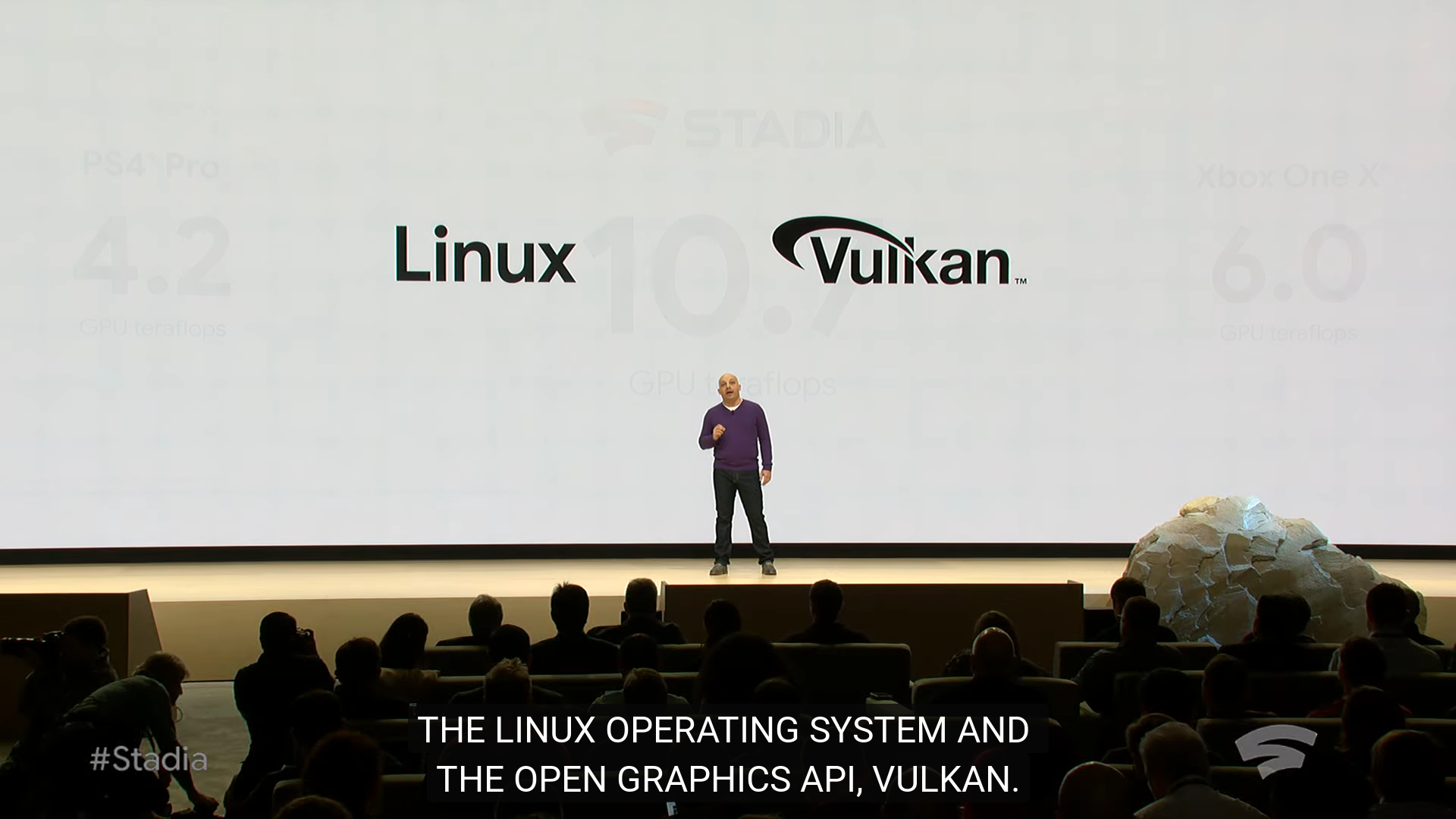
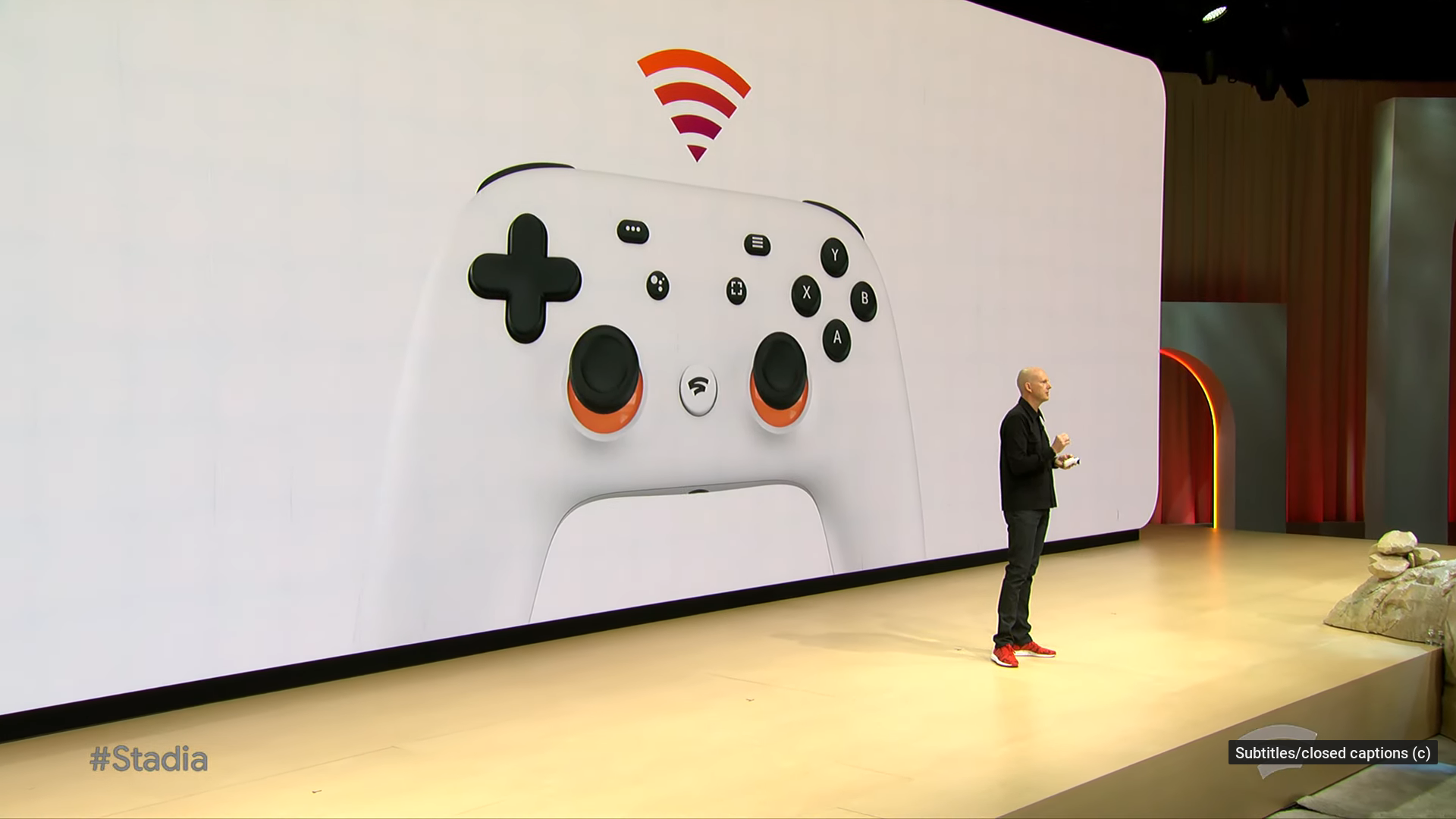
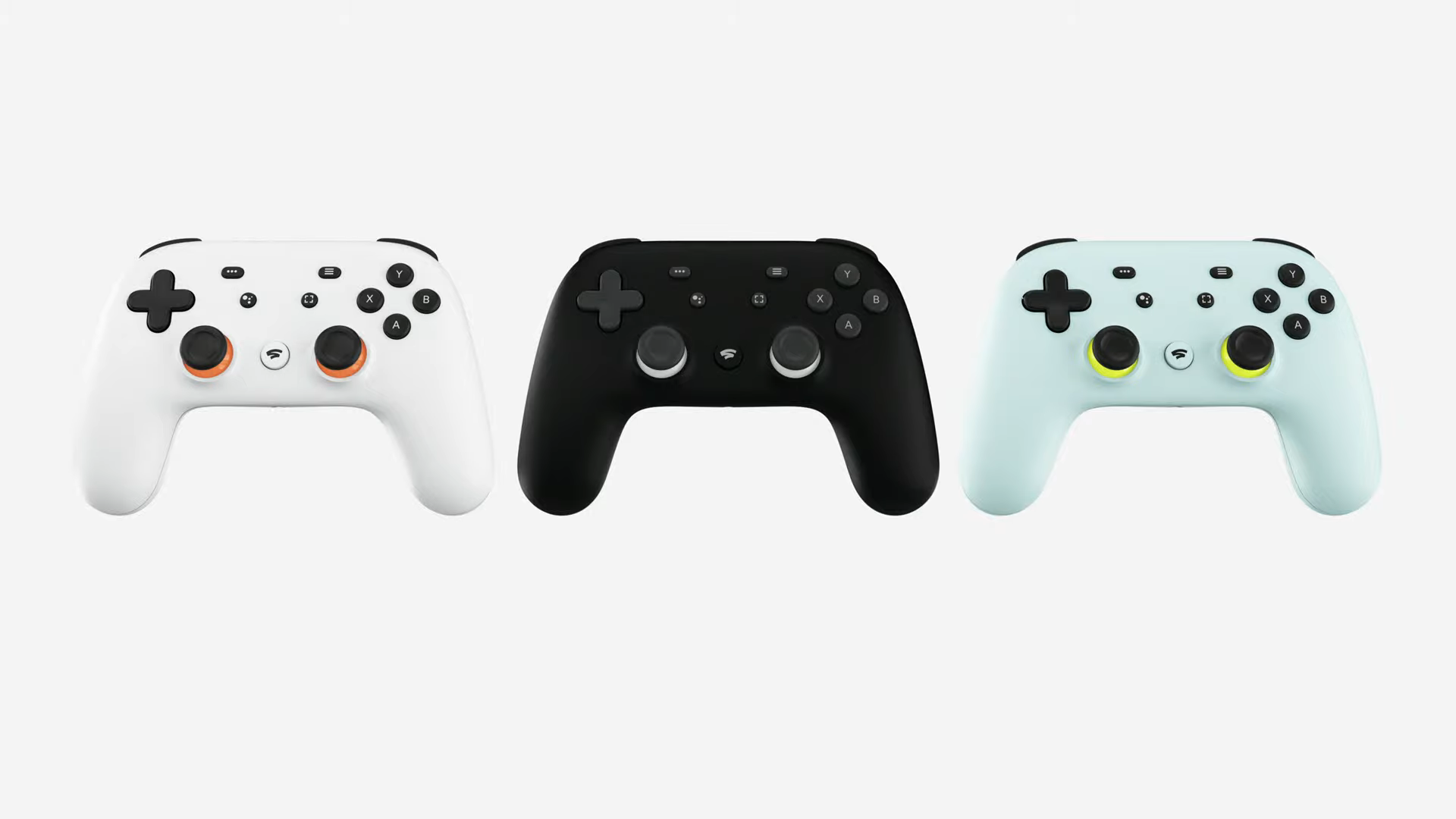
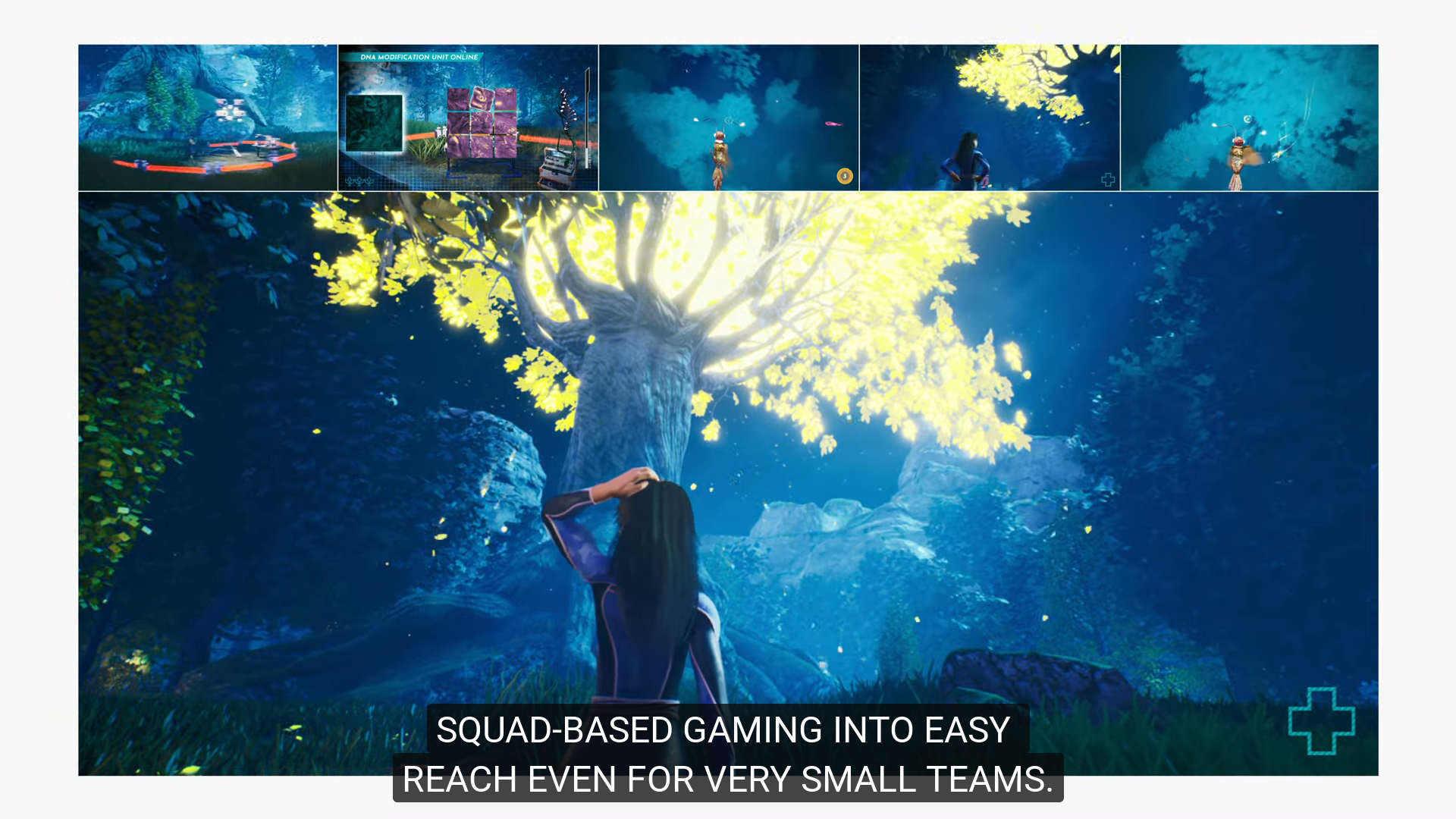
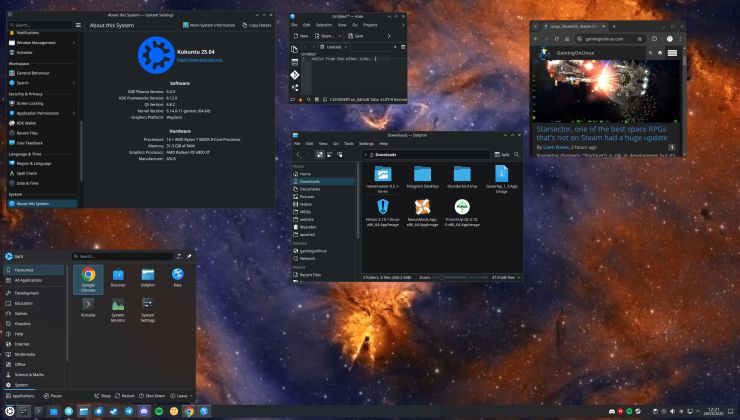









 How to set, change and reset your SteamOS / Steam Deck desktop sudo password
How to set, change and reset your SteamOS / Steam Deck desktop sudo password How to set up Decky Loader on Steam Deck / SteamOS for easy plugins
How to set up Decky Loader on Steam Deck / SteamOS for easy plugins
See more from me